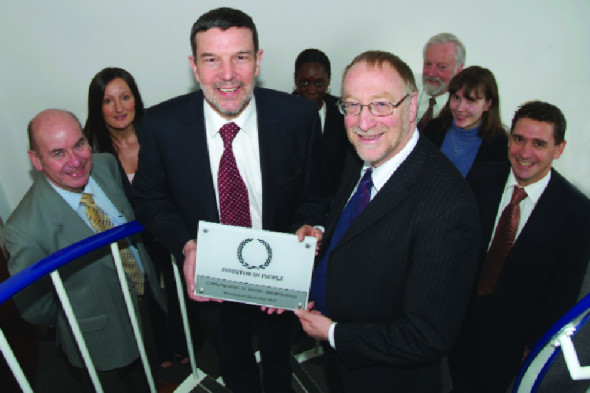Chairman, House of Commons Business Innovation and Skills Select Committee Adrian Bailey talks about stimulating business innovation in the UK. As Labour MP, he has won acclaim for successfully lobbying for the derogation from tariffs on local steel exports and arranging emergency housing for a woman threatened by her violent ex-husband.
More recently, the criticisms made by the BIS Committee on apprenticeships resonated widely in the UK. “There has been a huge increase in apprenticeships but the increase has not necessarily focused on where there are skills shortages,” says Bailey. “A lot of the schemes that are labeled as apprenticeships do not enhance skills in a way that traditionally we would expect apprenticeships to and that would include training both at the workplace and academic training.” He highlights that a lot of apprenticeships do not result in a demonstrable improvement in skills levels and do not prepare people to take on more responsible and demanding jobs. “Some of them seem to be just accrediting people for their existing skills and indeed there have been one or two examples of abuse of the scheme.” He emphasises the need to improve apprenticeship schemes as these can play a key role in creating a more skilled workforce, increasing employment and generating sustainable economic growth.
As a result of the criticisms made by the BIS Committee, the visa regime for international students coming to the UK has improved. Bailey talks about the importance of encouraging international students to come to the UK, “Students not only bring money to our economy but also to the universities they attend and are vital to underpin a lot of the courses for the indigenous domestic students.”
He explains the importance of the affinity that students from across the globe develop for the UK as a result of the time spent studying there and how this often translates into economic rewards for the UK. “When they return to their country of origin, the connections they make with Britain are often realised in financial and economic terms. On a recent trip to Shanghai, I went to the British Chamber of Commerce annual awards, there were awards for Chinese students who had developed businesses and had invested in Britain. What struck me was the large number that had actually done that and underpinned what I have said all along on the need to encourage global student migration to universities in order to maximise the economic benefit for this country.”
He is fully aware of the challenges facing small businesses in the prevailing recessionary climate but believes that small businesses can play a role in reviving the UK economy through increasing exports, “They have to look at exporting abroad. Relatively few small businesses even think of exporting abroad for a whole variety of reasons: some feel they are quite comfortable in the home market that they have got; others feel that they cannot get the money to invest to increase their capacity to export abroad, but a large number just don’t know how to do it and are nervous about the risks involved. Providing the support services to overcome those particular barriers is not easy at all. The United Kingdom Trade & Investment (UKTI) is now making strenuous efforts to try to get through to small businesses to get them to expand their horizons and to make them aware of the support that they could get in order to do so.”
Adrian Bailey’s interest in politics was developed at an early age through his father who was a political thinker and activist. “I grew up in a household where politics was always discussed. But I also think I had an insight into how politics can change your world. My sister was severely ill when I was young and had it not been for the NHS, she would have died because my parents could never have afforded the medical treatment to keep her alive. That was quite significant for me because it made me realise how actions of government could change people’s lives on a personal level and I grew up wanting to do that.” Improving people’s lives continues to be his inspiration in his political career, “This has been my driving force: trying to change people’s lives both on a personal level by doing things for them by representing their interests in constituencies and secondly by ensuring that the way money is spent and the way legislation is framed does help people. It’s the passion to make the world a better place that motivates me.”




